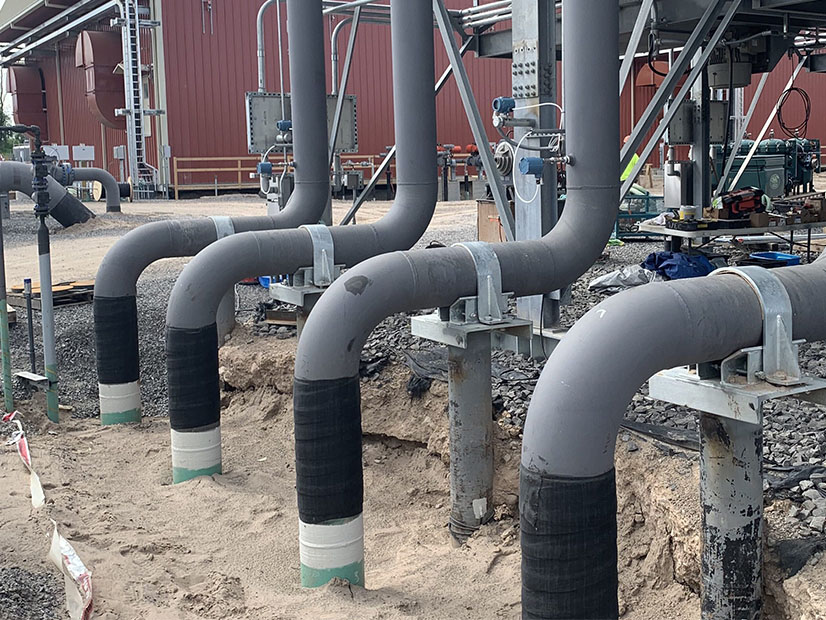
Ready for Next Winter
NYISO expects by next winter to meet the recommendations made in the joint FERC–NERC report on the February 2021 winter storm in the Midwest and Texas to protect critical natural gas infrastructure from manual and automatic load shedding and to prohibit use of such critical infrastructure loads for demand response, COO Rick Gonzales told the Management Committee on Wednesday.
“The NERC Board of Trustees directed the development of reliability standards consistent with the report recommendations in anticipation of this coming and next winter,” Gonzales said. “Normally it would take much longer through the NERC standard development process, but the directive by the NERC board is to have those standards developed again in time for the coming and the following winter, consistent with the recommendation time frames identified in the report.”
The ISO presented stakeholders its work on the recommendations at the Installed Capacity Working Group meeting Feb. 3, saying it intends to implement the rules on Nov. 1, the first day of the 2022/23 winter capability period.
In addition, the ISO requested that resources meeting its proposed definition of critical infrastructure load not be registered in its DR programs for the 2022 summer capability period.
Staffing Recruitment Improves
NYISO has started to make significant progress in terms of recruiting talent for several open key staff positions, CEO Rich Dewey told the MC.
“We’re still looking at a vacancy rate as we sit here today of about 9%, but of the 56 open positions, we have had accepted offers on 17 of them, so that’s a pretty successful recruiting month,” Dewey said.
Those new people need to be onboarded and brought up to speed, trained and acclimated to the ISO, but the progress is encouraging, he said.
NYISO has adopted a hybrid approach to working and has not identified any specific number of days that people are required or mandated to be in the office.
“We’ve asked each of the department heads to identify those positions and those work functions where it’s more efficient or effective to do it in person and, when flexibility is warranted or justified, allow people the choice of where they want to work,” Dewey said. “It varies by job and by department and will be monitored and tracked and adjustments made to the extent we need.”
Board Seeks 10% Increase in Compensation
Following a tri-annual structured compensation review, the NYISO Board of Directors intends to increase its members’ pay by approximately 10%, or 3.33%/year for the period.
The board reviews its compensation every three years and compares it to market forces to assess whether it is consistent. According to the ISO agreement, any change to board compensation can only happen after notifying the MC.
“I wanted to inform the Management Committee today of those plans and then if there’s any comments, questions or concerns, give the committee the opportunity to voice those, and then the board will take that under consideration when they meet in April before they finalize those changes,” Dewey said.
The current annual retainer of $65,000 per director would increase to $71,500; the retainer for being vice chairman or committee chair would go from $10,000 to $12,500; and the board committee meeting day stipend of $5,000 would increase to $5,500.
“This was anticipated when we put the budget together for 2022,” Dewey said. “The changes that the board is proposing are going to be accommodated within that budget that’s been placed, so I’m not coming here today to seek additional funds.”
Real-time BPCG Eligibility Changes
The committee unanimously recommended that the board approve tariff revisions to the real-time bid production cost guarantee (BPCG) payment provisions.
In order to close a loophole whereby units may receive inappropriate real-time BPCG payments under certain circumstances, the new tariff language adds an exception to the eligibility criteria for units placed out of merit for reliability below a self-scheduled wattage level, said Mark Buffaline, senior settlements analyst at the ISO. (See “Real-time BPCG Eligibility Changes,” NYISO Business Issues Committee Briefs: March 16, 2022.)


